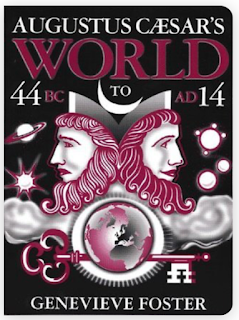I listen to my Bible reading as I head to work in the mornings. This morning the reading was from Matthew and Kings (I believe). Doing these narrations is fun but it definitely gives more appreciation (and grace) to my students' narrations! One reading... phew!
In Matthew what I recall is that Jesus was healing the lame and blind, and a lady with a blood issue, all on the way to a man's house whose daughter had died. The religious leaders were angry (of course) because they didn't like how He said your sins are forgiven. He asked if it was better to say take up your cot and walk? So He said that- but either way He is the only way that sin is forgiven.
I think I may have gotten that a bit muddled. Was this all in the same reading? He healed the daughter as well.
In Kings it covered Solomon's son's dealings with the people. I get Rehoboam and Jeroboam confused but I believe this is Rehoboam... the people came to him and asked for him to deal with them less harshly than his father had. He consulted with the older men who agreed that the best plan was to deal with them less harshly. Their reasoning was that the people would then be loyal to him as ruler. Rehoboam then asked his own peers, those he had grown up with, what they thought. They thought that the best idea was to deal even more harshly with the people. I don't recall why they thought this or what the outcome would be. Rehoboam took their advice and said you think you had it bad before? It'll be way worse now. The people did not like that at all and they decided to split the kingdom. The LORD was not happy either and told Rehoboam that because he had dealt so despicably with His people, the kingdom would be torn away from him.
I am reminded of the LORD telling Solomon that He would take the kingdom from him, but not during his lifetime. I believe Rehoboam was told that none of his house would remain- the men would be eaten by dogs on the road or birds in the field. Actually there have been a few that He said it would be taken from their line, but not in their lifetime.
There was also a prophet that was given a message by the LORD but he was told not to eat or drink anything in the location he was going to give the message. The first prophet was going to follow through with that directive but then another prophet came after him and falsely told him that a message from the LORD had come to him that contradicted the original message. So the first prophet turned in with the second, ate some bread and drank. The LORD said, since you've gone against what I told you, you're going to die and your bones will not be laid to rest with your fathers. It happened just as was said: a lion attacked him and killed him. A donkey and the lion stood over the body as people passed by. The lying prophet heard that he'd been killed and came to collect his remains. He laid them in his own burial and told his son that when his turn came to die that his bones were to be buried alongside the bones of this first prophet.
Rehoboam had a son that was fallen ill. He told his wife to disguise herself and go to a prophet/seer to ask if the boy would survive. The LORD told the prophet/seer that she was coming, and disguised, and to relay the message that the son would die as soon as her feet went back into the house. It happened just as he said it would.






